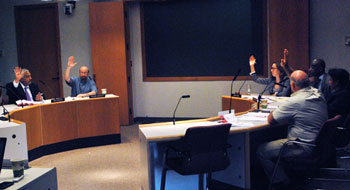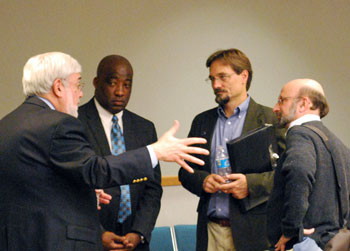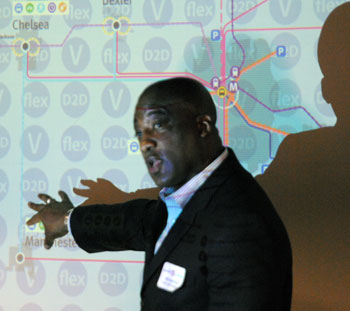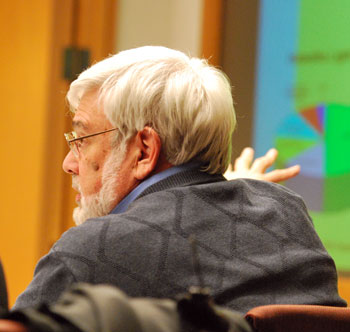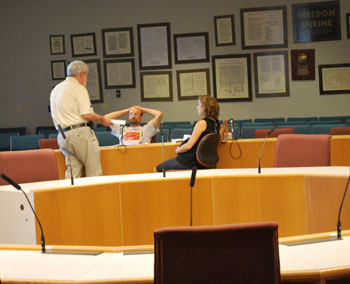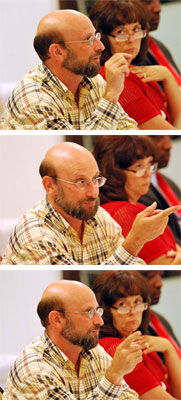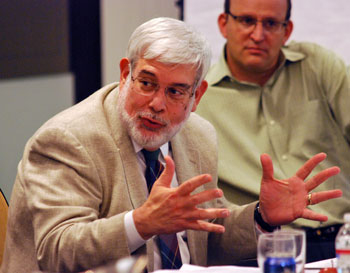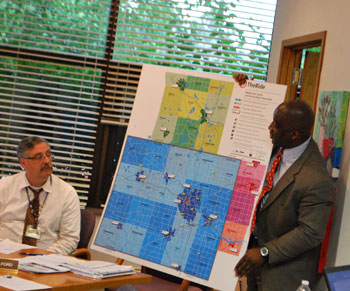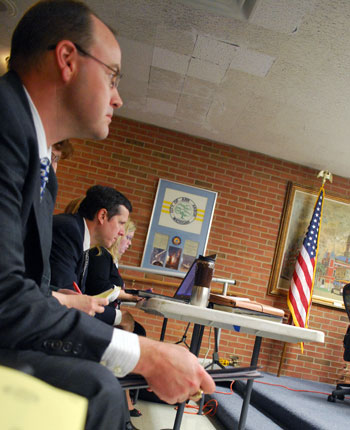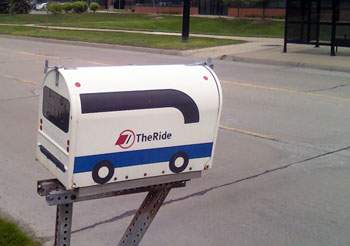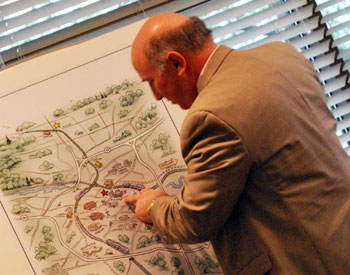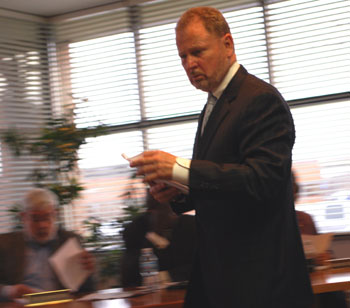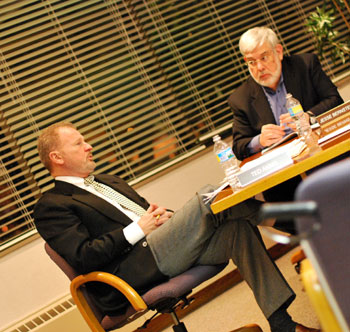AATA Adds Ypsilanti, Expands Potential
Ann Arbor Transportation Authority board meeting (June 20, 2013): While the AATA board also handled a relatively full agenda of routine items, the main event was formal action to ratify changes to the articles of incorporation of the authority, which added the city of Ypsilanti as a member.
In the last two weeks the city councils of Ypsilanti and Ann Arbor had voted unanimously to support the changes to the articles. The vote on the AATA aboard was also unanimous among the five members who were present. Sue Gott and board chair Charles Griffith were absent.
The change to the articles will also expand the board to nine members, with one of the two additional seats to be appointed by the city of Ypsilanti. The name of the authority will now reflect the fact that the geographic boundaries extend beyond Ann Arbor by changing the name to the Ann Arbor Area Transportation Authority (AAATA).
While the change in governance does not in itself have any financial implications, the goal of the governance change is to provide a way for the two cities to generate additional revenue supporting transportation – in addition to the local millages that the cities already levy, which are specifically dedicated to transportation and transmitted to the AATA. An additional millage could be levied by the AAATA – a statutory right also enjoyed by the AATA, but never exercised. The AAATA could put a millage proposal on the ballot, but it would require voter approval.
The board does not have a meeting scheduled for the month of July, but CEO Michael Ford indicated that one might be convened, to handle some routine items as well as next steps related to the addition of Ypsilanti to the AAATA. That would need to be noticed to the public as a special meeting under Michigan’s Open Meetings Act.
In other business, the AATA board agreed to raise fares for its commuter express service from Canton and Chelsea. The increase in fares, in combination with a one-time agreement with the University of Michigan to defray costs of the fare increase for its employees, allowed the Canton service to continue. Fares were also increased on a certain subset of rides taken on the AATA’s NightRide – a shared taxi service that operates after the AATA regular buses stop running. The fare for NightRide will remain $5 for all rides except those that have origins and destinations both in Ann Arbor, and for those that are made with an advance reservation. However, if a ride has either an origin or destination outside Ann Arbor and no reservation is made in advance, then the cost will be $7. The board also approved a number of other route scheduling changes.
In addition, the board approved the purchase of battery refresher kits for up to 20 of its hybrid electric buses. And the board authorized the sale of an older bus to the Ann Arbor Community Center for one dollar.
The board held a public hearing on its federal program of projects, and received updates on several items. Board members also heard an update on the delayed deployment of the AATA’s new website, an optimistic report on the possibility that around $800,000 of state funding would be restored, and a status report on the connector project. The connector project is still in the planning stages, and could result in high-capacity transit along the corridor that runs from US-23 and Plymouth Road through downtown southward to Briarwood Mall.
The board also took care of some internal housekeeping items at the meeting, electing Eli Cooper as treasurer, who replaces David Nacht. Nacht recently ended his 10 years of service on the board. [Full Story]




